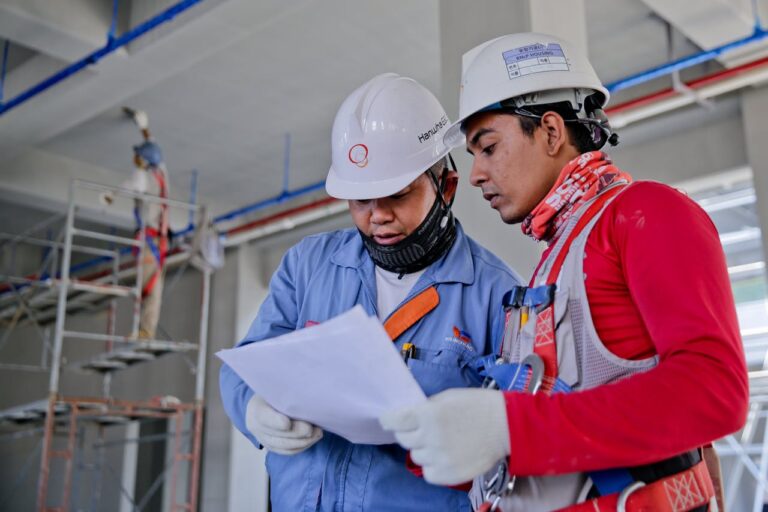Janitor Interview and Hiring Process

What Employers Look For in a Janitor
Dependability and punctuality
Ability to work independently or as part of a team
Understanding of cleaning supplies and equipment
Willingness to work early mornings, nights, or weekends
Basic knowledge of safety and hygiene standards
Physical stamina to handle long hours and manual labor
Janitor Hiring Process: Step-by-Step
1. Job Application
Apply through job boards or directly on employer websites. Entry-level janitor positions are common in schools, hospitals, office buildings, and government facilities. Include any prior cleaning or maintenance experience on your resume.
2. Background Check
Since janitorial staff often work in secure or private areas, employers may run background checks for criminal history, especially in schools, healthcare, and government jobs.
3. In-Person or Phone Interview
Interviews are typically short (15–30 minutes) and focus on work ethic, dependability, physical stamina, and familiarity with cleaning tools and procedures.
4. Job Offer and Orientation
If you pass the interview and background screening, you’ll receive a job offer. Most roles include on-the-job training covering equipment use, safety rules, and cleaning schedules.
Janitor Assessment Test: What to Expect and How to Prepare
Many employers require a Janitor assessment test as part of the hiring process to evaluate your readiness for the job. These tests are typically short and focus on your ability to follow instructions, use cleaning equipment safely, and understand basic workplace safety. Some roles-especially in schools, hospitals, or government facilities-may also include questions about sanitation protocols and chemical handling.
What’s Included in the Janitor Exam?
1. Safety and Hazard Recognition
You’ll be tested on how to identify and respond to common workplace hazards, such as wet floors, chemical spills, or broken equipment.
Example Question:
What is the correct way to warn others about a wet floor?
A) Use a mop
B) Call a supervisor
C) Place a wet floor sign
Correct Answer: C
2. Cleaning Procedures
You may be asked about best practices for cleaning restrooms, classrooms, office spaces, or industrial areas.
Example Question:
Which area should be cleaned first in a restroom?
A) Toilet
B) Sink
C) Mirror
D) Door handles
Correct Answer: B - to avoid cross-contamination
3. Tools and Equipment Use
Tests may ask about your experience with or knowledge of vacuums, floor scrubbers, or carpet cleaners.
Example Question:
What is the purpose of a floor buffer?
A) Disinfect surfaces
B) Dry mop floors
C) Polish and clean hard floors
Correct Answer: C
How to Prepare
Review basic workplace safety practices (OSHA standards are a plus)
Learn common janitorial tools and their uses
Practice reading and understanding written instructions
Take free janitor practice tests to get familiar with the format
Common Janitor Interview Questions and Answers
1. Why do you want to work as a janitor?
Answer: I take pride in maintaining clean, safe spaces for others. I enjoy physical work and staying active throughout the day. This role allows me to contribute behind the scenes in a meaningful way.
2. What cleaning equipment or chemicals have you used?
Answer: I’ve used floor buffers, carpet cleaners, pressure washers, and standard tools like mops and vacuums. I also understand how to safely use disinfectants, degreasers, and eco-friendly cleaning products.
3. How do you handle physically demanding tasks?
Answer: I stay fit and am used to being on my feet for long hours. I lift carefully using proper technique and take short breaks when needed to avoid fatigue.
4. Are you comfortable working early mornings, nights, or weekends?
Answer: Yes. I’m flexible and understand that janitorial work often requires off-hours to keep facilities clean without disrupting regular operations.
5. How do you stay motivated during repetitive tasks?
Answer: I set goals for each shift and focus on doing the job right. Seeing a clean result gives me satisfaction and keeps me motivated.
6. What would you do if you found a personal item left behind?
Answer: I would follow company policy-secure the item and report it to the supervisor or lost and found to ensure it’s returned properly.
7. How do you handle hazardous materials or spills?
Answer: I use proper PPE, follow safety guidelines, and report large spills immediately. I’m trained in handling hazardous materials safely.
8. How do you prioritize your cleaning tasks?
Answer: I follow the checklist and schedule provided. I prioritize high-traffic areas, spills, and restrooms to ensure health and safety.
9. Have you worked independently before?
Answer: Yes. I’m comfortable working alone or with minimal supervision. I stay focused and ensure tasks are completed thoroughly and on time.
10. How do you handle feedback or criticism from supervisors?
Answer: I welcome it. Feedback helps me improve and do my job better. I always aim to meet or exceed expectations.
FAQs About Applications and Interviews
No. Many janitorial positions are entry-level and offer on-the-job training. However, prior experience with cleaning tools, maintenance, or commercial cleaning can give you an advantage.
Key skills include attention to detail, time management, ability to work independently, knowledge of cleaning equipment, physical stamina, and understanding of safety procedures.
You can find jobs on company websites, government job boards, Indeed, Glassdoor, and local classifieds. Schools, hospitals, offices, and public buildings often hire janitorial staff.
The process usually includes an online or paper application, background check, a short interview, and in some cases, a basic skills or safety assessment test.
Yes, especially in schools, healthcare facilities, and government buildings. Employers want to ensure safety and trustworthiness due to the nature of the work environment.
Wear clean, neat clothes such as a collared shirt and pants. You don’t need formal business attire, but a tidy appearance shows professionalism.
Yes. Janitors often stand for long periods, lift heavy items, and perform repetitive tasks. Good physical health and stamina are important.






